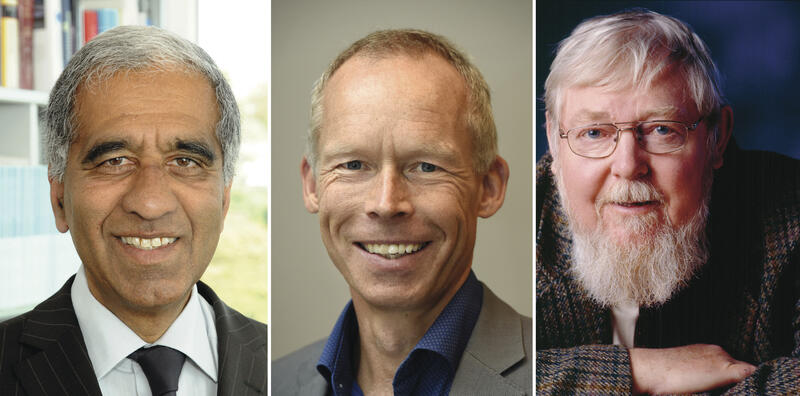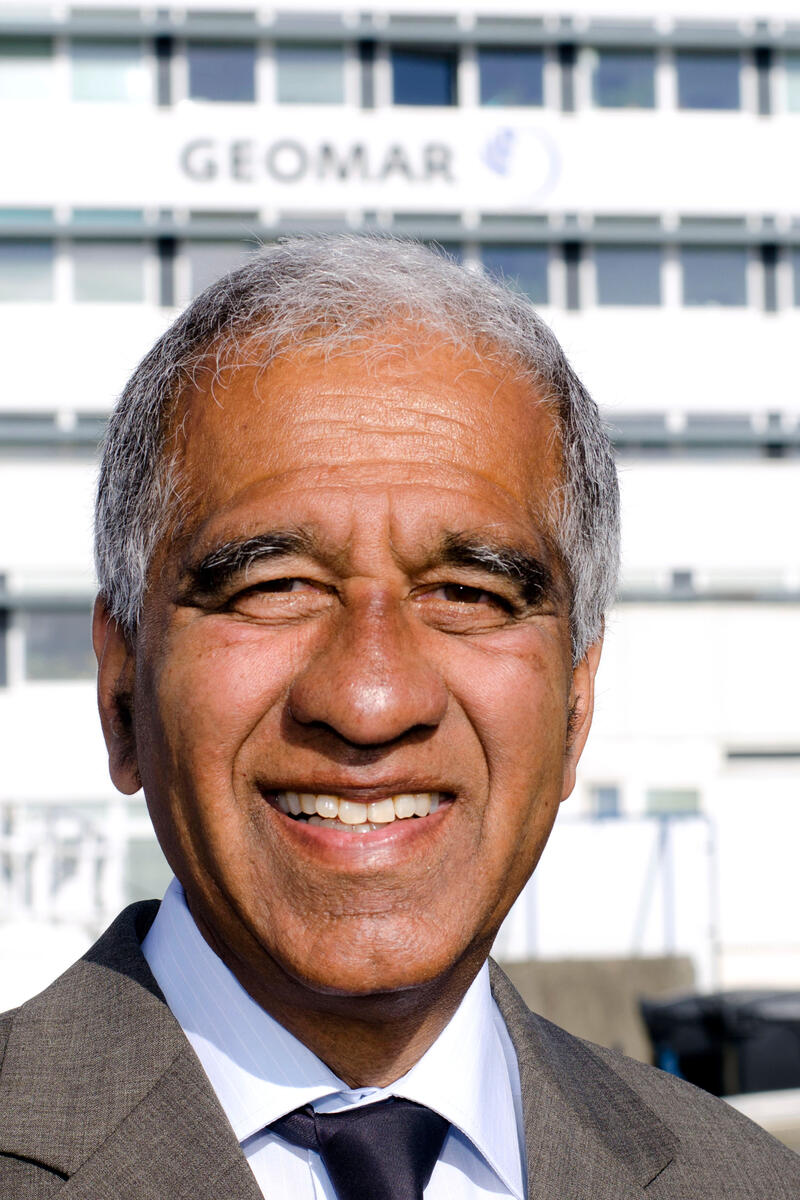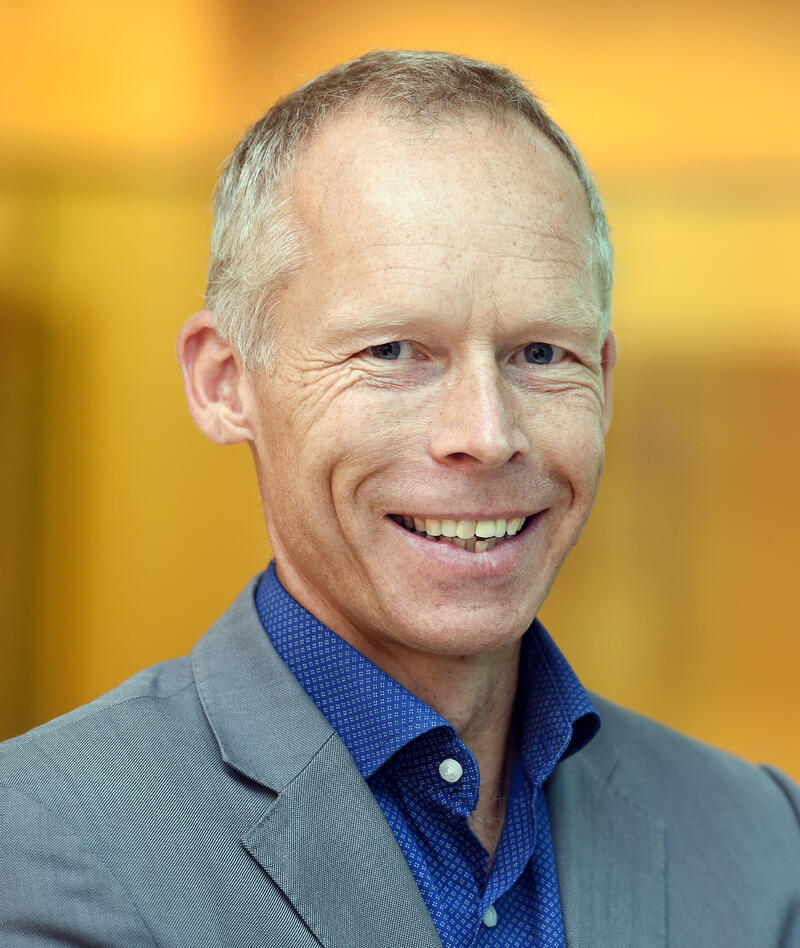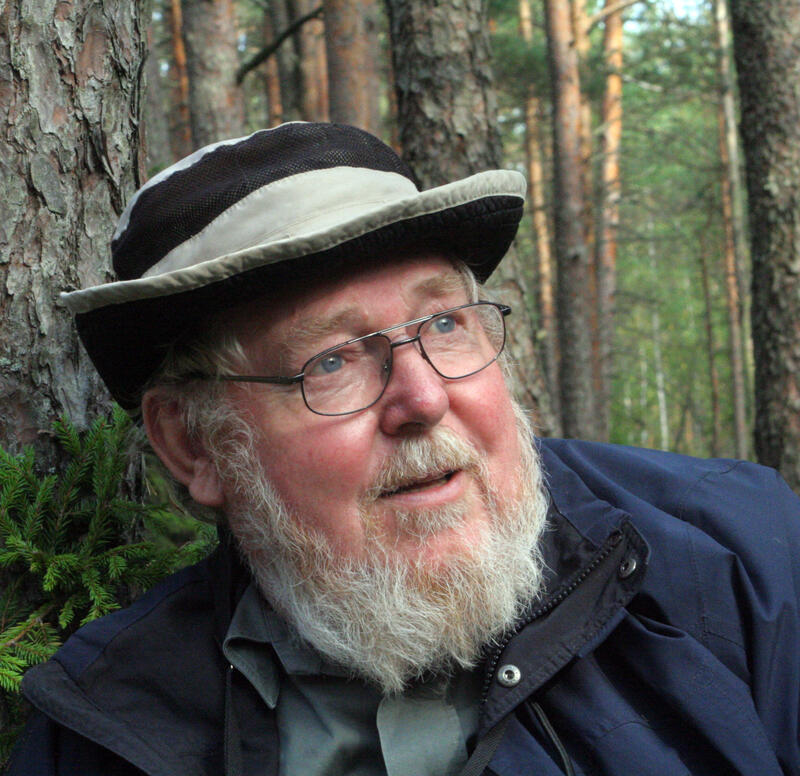DBU appeal: “Set a course in New York and Paris to ensure the future of humanity on a stable planet”
Sending a signal for the protection of the Earth to enable future world development: with the presentation of its German Environmental Award, the Deutsche Bundesstiftung Umwelt (DBU) is appealing “to the international community to set a course to ensure the future of humanity by safeguarding the Planet at the upcoming conferences in New York and Paris in 2015,” DBU Secretary General Dr. Heinrich Bottermann stressed today. The climate and ocean researcher Prof. Mojib Latif (60, Kiel) and the internationally active global sustainability scientist Prof. Johan Rockström (49, Stockholm) will receive the biggest European environmental prize in Essen on November 8, presented by German President Gauck. “The pace of global change towards sustainable development is much too slow. The facts are there before us. Our planet will be in serious danger if resolute action is not taken,” Bottermann said. The independent award is worth altogether 500,000 euros.
"We are at a crossroads. Resolute action is what is needed now!”
At a meeting of the United Nations (UN) General Assembly in New York at the end of September, the thematic priorities for the global sustainable development goals are to be laid down, while at the UN Climate Conference in Paris at the end of November, a new global agreement of climate goals for all 194 member states of the UN Framework Convention on Climate Change is to be agreed as a follow-up treaty to the Kyoto Protocol. Bottermann: “So we are at a crossroads. Resolute action is what is needed now!” The DBU would like to underline this fact by, for the first time, choosing two sustainability and climate researchers simultaneously to receive its award.

© Jan Steffen, GEOMAR Helmholtz-Zentrum für Ozeanforschung Kiel/ Peter Himsel, DBU/ Michael Succow Stiftung
Latif one of Germany's outstanding climate researchers
Bottermann said that Latif had been motivated in his decades of work by his personal concern about the state of the planet. As one of Germany's outstanding climate researchers, he said, Latif had drawn attention to the fact that our planet was at risk of becoming uninhabitable for humans without intact oceans. Bottermann described Latif's book, “The End of the Oceans,” as a very instructive and readable introduction to current marine research that depicted life in the seas, the complex and sometimes abstruse physical connections between climate and ocean, and the consequences of marine pollution for both ocean life and humans in an understandable and vivid manner.
"Eloquent and full of optimism, passion and fascination"
Bottermann went on to say that Latif had authored numerous books and specialist articles directed both at experts and a broad readership including children and youth, demonstrating his high scientific standards and his aspiration to write books whose content was accessible to the wider public. Latif also gave lectures at childrens' universities and schools, was a sought-after expert for science shows, and wrote articles for several publications, the secretary general said. Bottermann: “Latif devotes himself to his topic in a manner that is eloquent and full of optimism, passion and fascination. He does not content himself with just conveying facts, however, but calls very concretely for action.”
Co-author of the IPCC World Climate Report
Latif has been the director of the research division Oceanic Circulation and Climate Dynamics at the GEOMAR Helmholtz Centre for Ocean Research Kiel. Among other things, he is a member of the Academy of Sciences and Humanities in Hamburg, the Deutsche Gesellschaft Club of Rome, and chairman of the German Climate Consortium (DKK). In 2001 and 2007, he was a co-author of the World Climate Report of the International Panel of Climate Change (IPCC). Since 2003, he has been professor at Kiel University.

© Jan Steffen, GEOMAR Helmholtz-Zentrum für Ozeanforschung Kiel
Rockström leading scientist in the field of ecosytem research
Turning to the other prizewinner, Bottermann said that Rockström has been director of the Stockholm Resilience Centre since 2007. Essentially, resilience is the capacity to withstand external disturbances - the ability to exist as before despite of disturbances as well as to adapt to changing conditions and transform and refine in situations of crisis. A critical and emerging area in resilience research is focused on understanding the risks involved in crossing critical tipping points on the planetary scale, which might undermine the ability for human development. This is a research field where Rockström has made particularly strong contributions.
Capacity of the Earth system has already been exceeded
Bottermann today described how Rockström had analysed the rapidly growing body of scientific evidence showing that the capacity of the Earth system to support further global development has already been exceeded. He said Rockström had developed science-based concepts and action frameworks for politics, business and society. As an “engineer of the future,” he had established Earth’s safe operating space, providing the planetary boundaries within which sustainable eco-social development would be possible in future as well, the secretary general said.
Concept of “planetary boundaries” formed on the basis of concrete measurements
With scientific precision and constructive optimism, Rockström has, together with reputed international experts, collected and assessed globally available data on the state of the Earth, analysed the Earth system processes that regulate the stability of the planet, and defined, with his concept of “planetary boundaries” formed on the basis of concrete measurements, the biophysical tipping points that could push the planet away from its current (for humans desirable) stable state – such as, for example, the goal of international climate policy to limit global warming to less than one-and-a-half to two degrees in comparison with the level of the beginning of industrialisation, according to Bottermann. His scientific work had contributed to a fundamental shift in the understanding of the planet Earth as a system, the secretary general said. Bottermann: “A signpost towards a safe radius of action in the earth system, whose defined limits we should not transgress.”
One of the “great thinkers and communicators in the field of sustainable development"
But Rockström had also developed principles aimed at securing the socio-ecological system humans/biosphere for the future and preventing its collapse, the secretary general went on. In this way, according to Bottermann, he had “contributed to making the environmental debate more objective and enabled a much-needed mind shift towards a world that develops within scientifically defined boundaries for critical global parameters that regulate the stability of the planet.” Importantly, Rockström had been able to translate this academic science into an actionable framework and, moreover, communicated it to world leaders, Bottermann said. This was one of the reasons why the world community now had a chance of tackling global risks by bringing people and planet into harmony with one another, and of finding fair solutions at the meeting of the UN General Assembly that is to take place in a few days in New York, where goals for a sustainable development of the world within a resilient planet are to be set up, according to the secretary general. Rockström, he said, was one of the “great thinkers and communicators in the field of sustainable development and environmental sustainability of our times” and “can be compared with the report 'The Limits to Growth' put out by the Club of Rome in 1972 in his epochal impact.”

© DBU/Peter Himsel
"Honorary Lifetime Achievement Award": Em. Prof. Succow, an outstanding figure in nature conservation
This year, the DBU has chosen Em. Prof. Michael Succow (74, Greifswald) as the recipient of its “Honorary Lifetime Achievement Award”. He is considered an outstanding figure in nature conservation both nationally and internationally, and his commitment to large areas of wilderness in Germany is viewed as unique. At the time of German reunification, he succeeded, in one stroke and within a very short space of time, in securing 12.1 percent of the territory of the former East Germany with a temporary protected status, and 5.5 percent with a permanent protected status, in the form of national parks, biosphere reserves and nature parks under the national park programme for eastern Germany.

© Michael Succow Stiftung